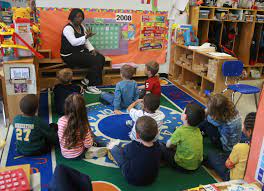Introduction:
In recent years, cases of sexual offenses within school premises have risen significantly. The responsibility of creating a safe and nurturing learning environment has emphasized the need for schools to actively educate sex offenders. As educational institutions play a pivotal role in molding the character and values of their students, it is imperative that the system effectively addresses and mitigates harmful behaviors associated with such offenses. This article delves into the concept of educating sex offenders within school environments, exploring various approaches and highlighting the moral and ethical responsibilities schools hold in curbing this issue.
The Role of Schools in Educating Sex Offenders:
Educating sex offenders within a school setting seeks not only to provide an opportunity for rehabilitation but also to prevent cases from escalating or recurring. Schools must undertake a comprehensive approach, encompassing factors such as psychological counseling, academic support, awareness programs, and collaboration with parents or guardians.
1. Psychological Counseling
A proactive approach to addressing sex offenders’ mental health is paramount. Providing access to qualified professionals who can assess their emotional, psychological, and cognitive states is essential. Through counseling, these students may understand the root causes of their behavior and develop strategies to cope with these issues effectively. Regular counseling sessions establish support systems that work towards the well-being of all individuals involved.
2. Academic Support
Educational institutions must ensure that a student’s academic performance is not compromised due to the circumstances surrounding their actions as a sex offender. Many offenders struggle with disenchantment or disengagement from learning environments due to feelings of guilt or fear of ostracization. To mitigate this, schools should create tailored academic plans that address individual needs and promote academic success.
3. Awareness Programs
Schools have a responsibility to raise awareness about sexual offenses by developing comprehensive curricula that include age-appropriate sex education, consent training, and respectful relationship building. These programs can help both offenders and non-offenders understand the consequences of sexual misconduct, ultimately promoting a safer and healthier environment for all students.
4. Collaboration with Parents or Guardians
Establishing open lines of communication between schools and families is indispensable. Parents or guardians must be actively involved in understanding and addressing the issues faced by their children as sex offenders. The collaborative approach ensures the availability of necessary support measures and strengthens the effectiveness of educational initiatives.
Conclusion:
The role of schools in educating sex offenders goes beyond traditional teaching methods. A holistic, multifaceted approach is needed to truly make an impact on reducing cases of sexual offenses within school environments. By addressing mental health, offering tailored academic support, raising awareness through effective programs, and working alongside parents or guardians, schools can foster a safer, more inclusive learning environment for all students. This responsibility falls not only on educational institutions but also on society as a whole to work together in addressing the issues related to sexual misconduct and guiding young individuals toward a path of redemption and growth.





